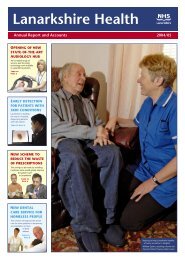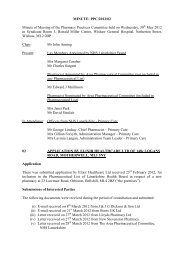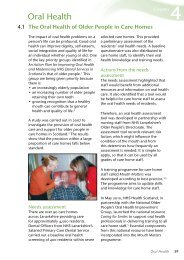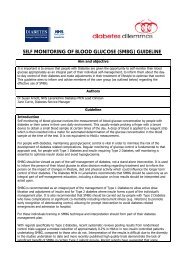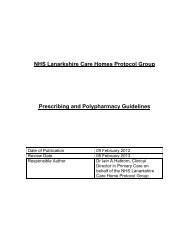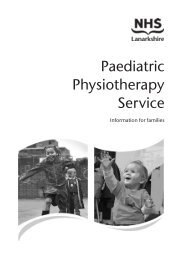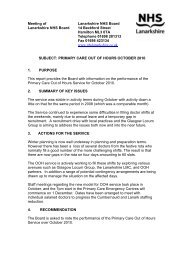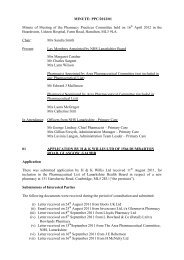Palliative Care Guidelines - NHS Lanarkshire
Palliative Care Guidelines - NHS Lanarkshire
Palliative Care Guidelines - NHS Lanarkshire
- No tags were found...
You also want an ePaper? Increase the reach of your titles
YUMPU automatically turns print PDFs into web optimized ePapers that Google loves.
<strong>Palliative</strong> <strong>Care</strong> <strong>Guidelines</strong>: IntroductionIntroduction: <strong>Palliative</strong> <strong>Care</strong> <strong>Guidelines</strong> Third Edition<strong>Palliative</strong> care• aims to improve the quality of life of patients and their families facing the problems associatedwith any life limiting illness.• provides relief from pain and other distressing symptoms.• integrates the psychological and spiritual aspects of patient care.• offers a support system to help patients live as actively as possible until death.• offers a support system to help the family cope during the patient's illness and in their ownbereavement.• uses a team approach to address the needs of patients and their families.• affirms life and regards dying as a normal process.• intends neither to hasten or postpone death.• is relevant in combination with many other treatments directed at the underlying illness.<strong>Palliative</strong> care is part of the care delivered by a wide range of health and social care professionalsworking in the community, in care homes and in hospitals. Some patients with more complexproblems will benefit from advice, assessment or care from a palliative care specialist. Details ofhow to access local specialist services are included in the <strong>Guidelines</strong> and are available online.These <strong>Guidelines</strong> reflect a consensus of opinion about good practice in the management of adultswith a life limiting illness. They have been developed by a multidisciplinary group of professionalsworking in the community, hospitals and specialist palliative care services and approved by localFormulary and Clinical Policy Committees. There is a separate section on the website coveringpaediatric palliative care.Every effort has been made to ensure the accuracy of the text and that evidenceinformed information has been included. Adherence to guideline recommendations will not ensurea successful outcome in every case. It is the responsibility of all professionals to exercise clinicaljudgement in the management of individual patients. <strong>Palliative</strong> care specialists occasionally use orrecommend other drugs, doses or drug combinations than those given here.<strong>NHS</strong> Lothian holds copyright for these materials. Please acknowledge authorship if you copyor disseminate them. The <strong>Guidelines</strong> Group members would like to thank all those involved inpreparation of these resources.<strong>Palliative</strong> <strong>Care</strong> <strong>Guidelines</strong>: websitesThe printed <strong>Palliative</strong> <strong>Care</strong> <strong>Guidelines</strong>, additional guidelines, more information about specialistservices, information for patients and further professional resources are available online.<strong>NHS</strong> Lothian intranet: http://intranet.lothian.scot.nhs.uk/nhslothian/healthcare/a_z/p/palliative_care.aspx<strong>NHS</strong> Lothian website: http://www.nhslothian.scot.nhs.uk/ourservices/palliative/SHOW website: http://www.palliativecareguidelines.scot.nhs.ukCorrespondence and enquiries to:Dr Kirsty Boyd (<strong>Palliative</strong> <strong>Care</strong> <strong>Guidelines</strong> Group Chair)<strong>Palliative</strong> <strong>Care</strong> ServiceRoyal Infirmary of EdinburghLittle France Crescent,Edinburgh EH16 4SATel: 0131 242 1990e-mail: kirsty.boyd@luht.scot.nhs.uk© <strong>NHS</strong> Lothian Issue date: January 2009 Review date: March 20121



